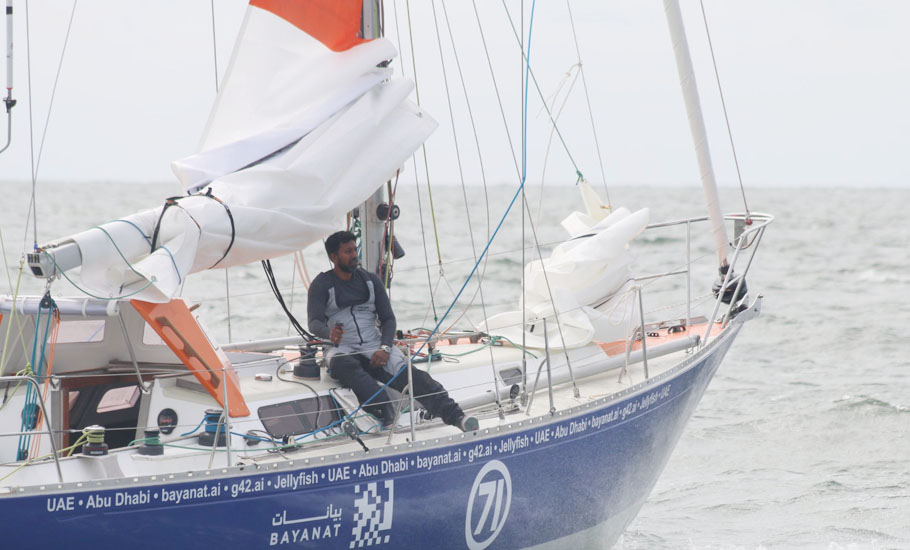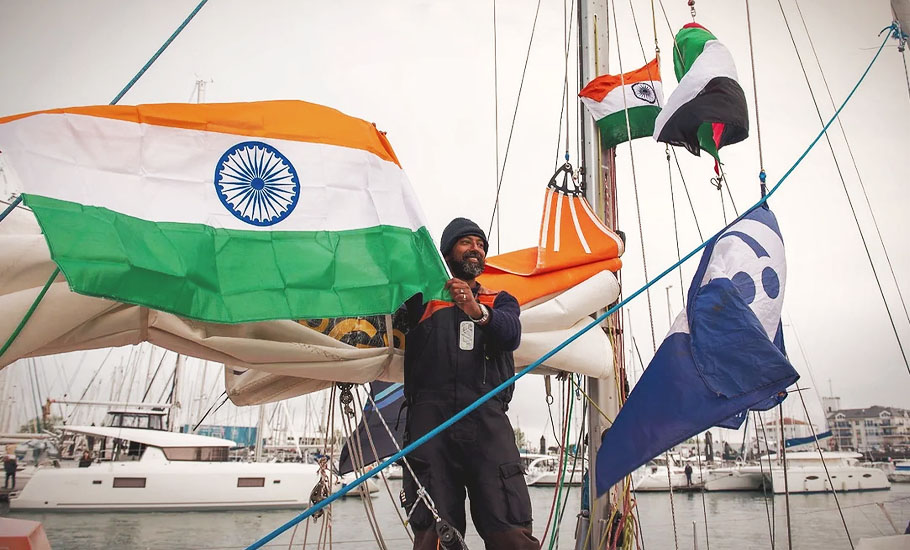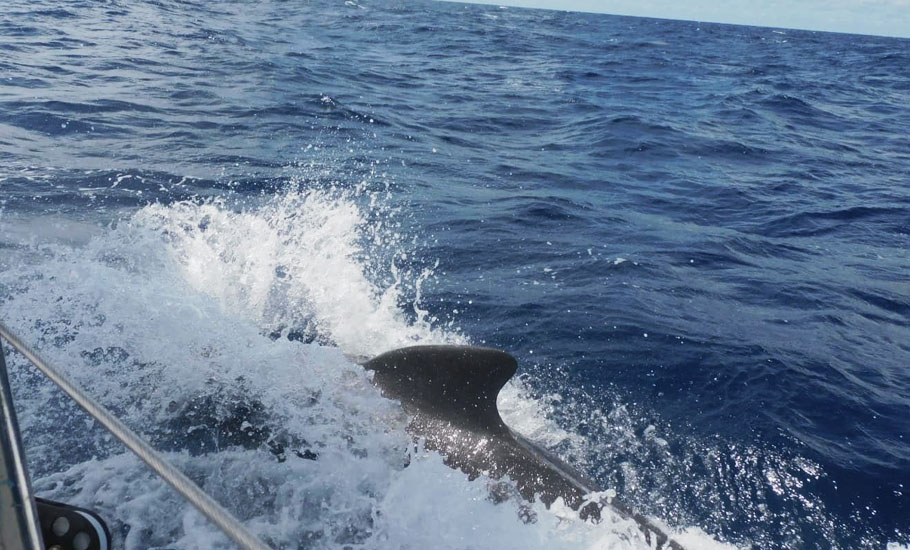
- Home
- India
- World
- Premium
- THE FEDERAL SPECIAL
- Analysis
- States
- Perspective
- Videos
- Sports
- Education
- Entertainment
- Elections
- Features
- Health
- Business
- Series
- In memoriam: Sheikh Mujibur Rahman
- Bishnoi's Men
- NEET TANGLE
- Economy Series
- Earth Day
- Kashmir’s Frozen Turbulence
- India@75
- The legend of Ramjanmabhoomi
- Liberalisation@30
- How to tame a dragon
- Celebrating biodiversity
- Farm Matters
- 50 days of solitude
- Bringing Migrants Home
- Budget 2020
- Jharkhand Votes
- The Federal Investigates
- The Federal Impact
- Vanishing Sand
- Gandhi @ 150
- Andhra Today
- Field report
- Operation Gulmarg
- Pandemic @1 Mn in India
- The Federal Year-End
- The Zero Year
- Science
- Brand studio
- Newsletter
- Elections 2024
- Events
- Home
- IndiaIndia
- World
- Analysis
- StatesStates
- PerspectivePerspective
- VideosVideos
- Sports
- Education
- Entertainment
- ElectionsElections
- Features
- Health
- BusinessBusiness
- Premium
- Loading...
Premium - Events

Why Abhilash Tomy’s life is a voyage of ‘comebacks’

A broken spine, a capsized yacht in the middle of the sea and a pregnant wife at home… Sailor Abhilash Tomy was not able to stand, so he crawled. No food, no water for three days. Abhilash met with an accident when a storm broke both the masts of his yacht in the Indian Ocean during his first attempt at the Golden Globe Race in 2018. It took more than three days until a French patrol...
A broken spine, a capsized yacht in the middle of the sea and a pregnant wife at home… Sailor Abhilash Tomy was not able to stand, so he crawled. No food, no water for three days. Abhilash met with an accident when a storm broke both the masts of his yacht in the Indian Ocean during his first attempt at the Golden Globe Race in 2018. It took more than three days until a French patrol boat rescued him. But he didn’t lose hope.
“I was thinking of how to make a new yacht and prepare for the next Golden Globe Race during the three days,” said Abhilash, a retired commander in the Indian Navy, who was the first Indian to complete a solo non-stop voyage around the world in 2013.
In 2022, Abhilash won the second place in the 2022 Golden Globe Race (GGR), again the first Indian to achieve the feat. Abhilash’s yacht ‘Bayanat’ crossed the finish line in Les Sables d’Olonne, France, after a 236-day 30,000 mile journey around the globe (Depart from Les Sables-d’Olonne, France and sale solo, non-stop around the world, via the five Great Capes and return to Les Sables-d’Olonne).

For Abhilash, life is a journey of comebacks. There have been at least 12,000 summit ascents since Edmund Hilary and Tenzin Norgay first reached the top of Everest in 1953. More than 600 people have gone to space. But only 199 people have completed solo nonstop around the world so far. Why? The voyage needs a sense of determination, special skills and courage.
Born in Kerala’s Changanassery in 1979, Abilash grew up listening to the stories of significant voyages, a subject that he was fond of. However, the thought of becoming a sailor first struck Abhilash when he was studying in Class 3. He happened to see a documentary on Doordarshan about the yacht called ‘Trishna’ belonging to the Corps of Engineers of the Indian Army, which had embarked on the circumnavigation of the globe from 1985 to 1987, the first time by an Indian team. Attracted by the adventures in the voyage, he wanted to become a sailor when he grew up.
Also read | Why rotis are exchanged for wishes at Bara Shaheed dargah in Andhra
At the same time, an aircraft from his father’s (a lieutenant commander with the Indian Navy) base crashed, killing two of its pilots. When his mother read this news to the little Abhilash, he decided that he would become a pilot. The only place where he could fly and sail was the Indian Navy. Even though he ranked fairly well in the entrance examinations of engineering and medicine after Class 12, he joined the Indian Navy as a cadet in Goa where he learnt how to sail in three years. A year later in 2001, he went to the Air Force where he spent a year and became a pilot.
One fine day he decided that he would sail around the world. The thought struck him when he was only 19 years old. There was a reason behind it. Abhilash happened to read a feature about a woman who did single-handed round-the-world race in a magazine. The story inspired him and he decided that when he leaves the Navy after 20 years, he would do a round-the-world race without assitance.
Abhilash had a plan. He was drawing a salary of Rs 8,500 in 2000. So he decided to spend only Rs 500 a month and save the rest. This way, he thought he would be able to save money besides his provident fund and other benefits to buy a yacht.
Also read | Govt imposes import curbs on laptops, computers for security reasons
But in 2009, came a turning point. The Indian Navy asked Abhilash whether he could support Dilip Donde, who was planning to sail around the world. Mooted by Adm Manohar Awati, the Indian Navy started an ambitious programme to send an Indian around the world alone in a sailboat. As part of this project, Dilip Donde circumnavigated the earth with four stops.

Buoyed by its success, the Navy decided to carry out a without-assistance, non-stop circumnavigation of the globe under sail. Abhilash’s circumnavigation in 2013 was a part of Project Sagar Parikrama. “I was selected as the skipper of the expedition. I started my journey on November 1, 2012, from Mumbai and finished at Mumbai on March 31, 2013, having sailed around the world without stops and all by myself in 151 days. At the end of the voyage, Pranab Mukherjee, the then President of India, gave me a ceremonial reception at the Gateway of India. It was a great feeling,” said Abhilash.
What is the Golden Globe Race (GGR)? It roughly means covering “30,000 miles”, “non-stop”, “alone” and “no-outside-assistance”, according to goldengloberace.com, the official website of the GGR. The Earth’s circumference (the distance all the way around the equator) is 40,075 kilometres. “In August 1966, British yachtsman Francis Chichester set out from England to sail solo around the world to Australia and back via the five Great Capes. He completed the circumnavigation in 226 days — 274 days including the stopover in Sydney — to set a record for the fastest voyage around the world in a small boat. In March 1968, the Sunday Times Golden Globe Race was announced — the first-ever attempt to sail solo nonstop around the world,” said the website. “By offering a trophy to the first person to sail solo nonstop around the world via the five great capes and a £5000 UK Pounds Price for the fastest time, the newspaper created an instant race and a great story to increase circulation,” it said.
In 1968, even though nine men started the first solo non-stop sailing race around the world, only one could cross the finishing line. While John Ridgway, Chay Blyth, Loïck Fougeron, Bernard Moitessier, Bill King and Alex Carozzo retired, Nigel Tetley was rescued after his boat capsized and Donald Crowhurst died by suicide. Robin Knox-Johnston was the only one who finished the race in 312 days in his yacht called ‘Suhaili’ and he became the first man to sail single-handed and non-stop around the world. Although the Sunday Times Golden Globe Race became popular, it had its own share of controversies, mainly due to its tragic outcome and failures of contestants. No follow-up race was conducted for some time. However, the 50th anniversary edition of the 1968 Sunday Times Golden Globe Race was held in 2018.
Abhilash was an entrant in the 50th anniversary edition of the Golden Globe, which started from Les Sables d’Olonne France on July 1, 2018. Even though he tried for a sponsor, he couldn’t manage to get one. There was no other option so he spent all investments to buy a yacht. “I made a replica of Robin Knox-Johnston’s ‘Suhaili’ and named it ‘Thuriya’.” I had spent a lot of money, say all my investments, for buying the yacht. I then took it for maintenance at some top boat-building centres in the world,” the 44-year-old told The Federal.
The rules of the GGR are strict. Entrants are limited to sailing on similar yachts and with equipment that was available to Robin Knox-Johnston in that first (1968) race, said the rule book. “That means sailing without modern technology or the benefit of satellite-based navigation aids. Competitors must sail in production boats between 32 ft and 36 ft overall designed prior to 1988 that have a full-length keel with rudder attached to their trailing edge. These yachts are heavily built, strong and sturdy, similar in concept to Sir Robin’s 32ft vessel ‘Suhaili’,” said goldengloberace.com.
“The entrants of the GGR may seek shelter and anchor to make repairs, but may not enter the port and no person may give any material assistance at any time during the race,” it said. Golden Globe Race 2018, according to Abhilash, had some very tough conditions when it came to using modern-day communication to stay in touch with families. Sat phones, texting devices, etc are banned. “My wife found a ham radio station in South Africa that was relaying weather information to the sailors every day. She would send them a voice message which they would play on the radio. If reception was good, I would receive it. There was no way I could send a reply since I did not have a licence to transmit on ham frequencies,” he said.

Abhilash was sailing fairly well during the GGR 2018 when he got a message from the organisers. “My wife wanted to tell me that I was going to become a father. It was great news so I wanted to finish the race as fast as I could. Even though my boat ‘Thuriya’ was one of the smallest and slowest, we were faster than Robin by 30 per cent. After 82 days, we were lying in third position when the storm overtook us in the southern Indian ocean. My boat was dismasted and destroyed, and I suffered a huge fall which left me with multiple spine fractures,” he said.
Abhilash was thrown out and his back hit an iron rod. His knees were not able to hold his weight. He crawled. Everything was in a mess. There was no water and food for three days until a French patrol boat rescued him. Despite the mishap, Abhilash didn’t lose hope. He was rather thinking of building another yacht. “Since there was no food and water, I started vomiting continuously. Acidity and hiccups followed. I knew I lost around Rs 4 crore from my pocket that I had invested for buying the yacht. I was not able to cry. But I was hopeful. I thought of making a new yacht and participating in the GGR 2022,” he said.
It was this strong sense of hope and confidence that made Abhilash break all the obstacles on the track. There was a joint rescue operation from four countries. India sent INS Satpura and Australian Navy dispatched HMAS Ballarat for the rescue operation. However, the French fisheries patrol vessel called “Osiris” was the first to reach him. Abhilash was shifted to Ile Amsterdam, an island in the Indian Ocean, where he was given primary medical care.
“On the 6th day after the accident, I even went for a walk with crutches because I had no idea about the fractures,” said Abhilash. INS Satpura reached the island the next day and he was transferred to the ship on a helicopter. “We arrived in India on the 16th day. An MRI revealed the fractures in the spine. Two days later I was operated upon. Titanium rods were inserted in my spine and five vertebrae were fused into one. My legs were so badly off that I had to learn to walk again. But I did learn to walk, and then got into a cockpit and got back to flying, and sailing,” he added.
After three-and-a-half years, he headed back to the same race that almost killed him. In 2021, Abhilash quit the Indian Navy. He found a sponsor from UAE for his GGR 2022. He purchased a Rustler 36 in France, and named it ‘Bayanat’. “The voyage of Bayanat through some of the remotest corners of the planet gave a unique opportunity to study the health of our oceans. As part of the voyage, I collected water samples which are being analysed for microplastics. The results are bound to be interesting and I have personally witnessed the huge changes that the oceans have undergone since my first circumnavigation in 2013,” he said. “I was chased by a family of whales for a few hours in the Bay of Biscay. What seemed harmless fun at first got me worried later when I remembered that these creatures have learned to attack boats and chew on rudders.”
Like the GGR 2018, there were challenges in the GGR 2022 as well. But Abhilash was ready to face whatever came his way. The most disastrous one was to cross the spot where his boat was hit by a storm in the GGR 2018. “Once I crossed that spot (where his yacht capsized), I was a bit relieved,” he said. He finished second after spending 236 days at sea at the GGR 2022.

“When I reached India, I got a warm welcome from the Indian Navy. I met my doctor who operated on me and those who helped me during my 2018 GGR accident. It was a great feeling,” said Abhilash.
Racing around the world, or any sporting event requires money. “I am happy that my first circumnavigation in 2012-13 was entirely funded by the Indian Navy. The round the world race in 2018 found few sponsors. The GGR in 2022-23 was sponsored by Bayanat, a UAE-based artificial intelligence company,” he said. “There are quite a few challenges in launching a campaign from India. For one, it is difficult to find a sponsor since this sport is not very well understood by anyone in India. We don’t have too many boats to practise either and all training and boat preparation has to happen in Europe,” he said.
